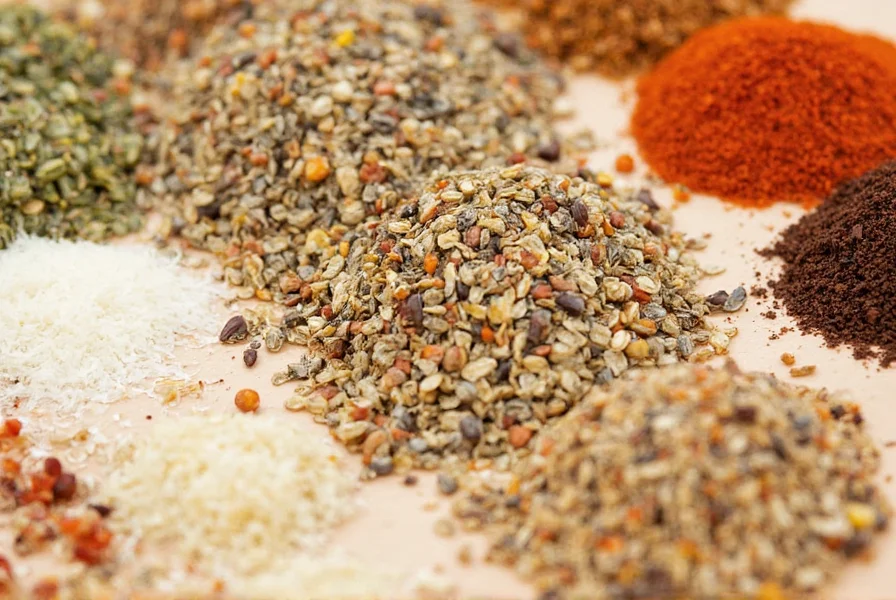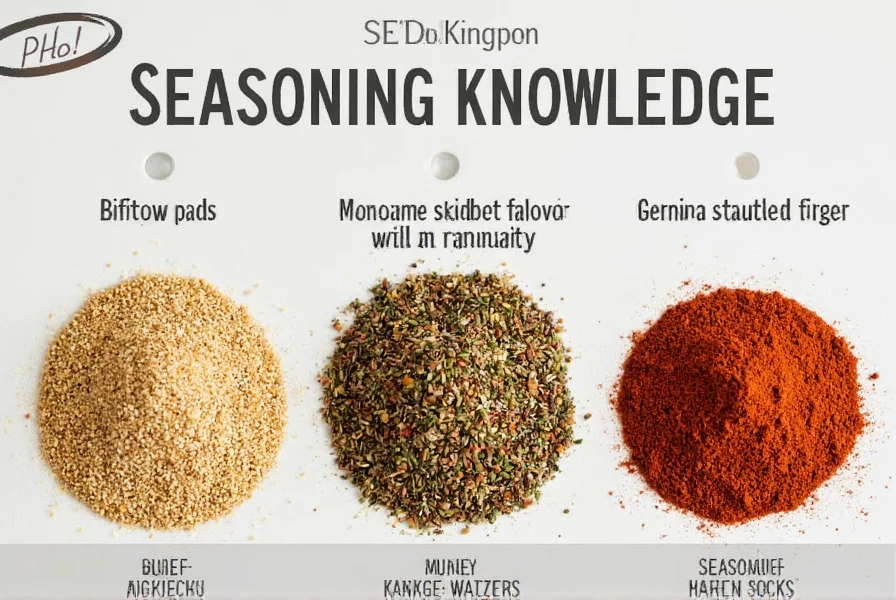Developing seasoning expertise transforms ordinary meals into extraordinary culinary experiences. Seasoning isn't just about adding salt and pepper—it's a systematic approach to building flavor layers that complement ingredients without overpowering them. Professional chefs and home cooks alike rely on seasoning knowledge to elevate their cooking from bland to brilliant.
The Science Behind Effective Seasoning
Understanding the five basic taste elements—sweet, salty, sour, bitter, and umami—forms the foundation of seasoning knowledge. Each element plays a specific role in flavor development:
| Taste Element | Primary Function | Common Sources |
|---|---|---|
| Salt | Enhances other flavors, reduces bitterness | Sea salt, kosher salt, soy sauce |
| Acid | Brightens flavors, balances richness | Lemon juice, vinegar, wine |
| Umami | Adds depth and savoriness | Mushrooms, tomatoes, Parmesan |
| Sweet | Counters acidity, rounds flavors | Sugar, honey, caramelized onions |
| Bitter | Provides complexity, balances sweetness | Dark greens, coffee, citrus zest |
Effective seasoning creates harmony between these elements. For example, a touch of acid can rescue an overly salty dish, while a pinch of sugar balances excessive acidity. Understanding these interactions represents the core of seasoning knowledge that separates competent cooks from exceptional ones.
Essential Seasoning Categories Every Cook Should Know
Seasoning knowledge extends beyond basic salt and pepper. Master these categories to develop comprehensive flavor understanding:
Salt Varieties and Applications
Different salts serve distinct purposes in cooking. Table salt dissolves quickly for even distribution, while flaky sea salt provides textural contrast when added at the end. Understanding salt's role in flavor enhancement—not just salinity—is crucial seasoning knowledge for home cooks. Always season in layers: a pinch during cooking, then adjust at the end.
Acid Selection and Timing
Acids brighten dishes and balance richness. Vinegars vary significantly—balsamic works well with roasted vegetables, while rice vinegar complements Asian dishes. Citrus juices add freshness but lose brightness when cooked too long. Seasoning knowledge includes recognizing that acids should typically be added near the end of cooking to preserve their vibrant character.
Herb and Spice Combinations
Knowing which herbs and spices complement specific proteins and vegetables represents advanced seasoning knowledge. Mediterranean dishes benefit from oregano and rosemary, while cumin and coriander enhance Middle Eastern flavors. Fresh herbs generally go in at the end, while dried spices benefit from early addition to release their oils. Understanding these timing differences significantly impacts flavor development.
Practical Seasoning Techniques for Home Cooks
Developing seasoning knowledge requires both theoretical understanding and practical application. Follow these evidence-based techniques to improve your seasoning skills:
The Progressive Seasoning Method
Season in stages rather than all at once. Add approximately one-third of your estimated salt during preparation, another third while cooking, and make final adjustments at the end. This approach prevents over-seasoning and allows flavors to develop gradually—a fundamental seasoning knowledge principle used by professional chefs.
Taste and Adjust Systematically
Develop the habit of tasting at multiple points during cooking. When adjusting seasoning, focus on one element at a time. If a dish tastes flat, try adding acid before reaching for more salt. If it's too acidic, a touch of sweetness often works better than simply reducing the acid. This systematic approach represents essential seasoning knowledge for consistent results.

Understanding Ingredient Interactions
Seasoning knowledge includes recognizing how ingredients affect each other. Fatty foods require more seasoning to penetrate, while delicate ingredients need subtler touches. Acidic ingredients can intensify salt perception, while sweetness can mask saltiness. Understanding these interactions prevents common seasoning mistakes and leads to more balanced dishes.
Common Seasoning Mistakes and How to Avoid Them
Even experienced cooks make seasoning errors. Recognizing these pitfalls represents crucial seasoning knowledge:
- Seasoning too early with salt—adding all salt at the beginning can lead to over-reduction and excessive saltiness as liquids evaporate
- Using pre-mixed blends indiscriminately—understanding individual components allows for better customization than relying solely on pre-made mixes
- Ignoring temperature effects—cold dishes require more seasoning than hot ones, as cold dulls flavor perception
- Overlooking carryover cooking—seasoning knowledge includes recognizing that flavors continue developing after removal from heat
Developing Your Seasoning Intuition
True seasoning knowledge evolves from understanding principles to developing intuition. Start by following recipes precisely, then gradually experiment with adjustments. Keep a cooking journal noting seasoning choices and results. Over time, you'll develop an instinct for what a dish needs before tasting—this represents the highest level of seasoning knowledge.
Remember that seasoning isn't about following rigid rules but understanding flavor relationships. The most skilled cooks view seasoning as an ongoing conversation with their ingredients, adjusting and responding throughout the cooking process. This dynamic approach separates mechanical cooking from truly intuitive culinary artistry.











 浙公网安备
33010002000092号
浙公网安备
33010002000092号 浙B2-20120091-4
浙B2-20120091-4